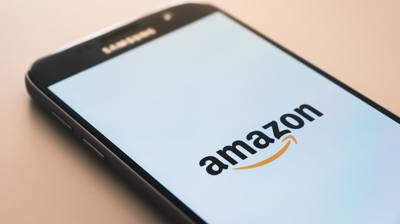
Amazon could become a major force in banking almost overnight after new research showed that millions of its customers would sign up to try a bank account if one was launched.
The global internet giant has more than 300 million active customers, but the most important community is its 100 million Prime members, who pay a fee for services from the retailer.
According to recent research carried out by consultant Bain & Co among 6,000 US consumers, 65% of Prime members would sign up for a free Amazon bank account offering 2% cashback on purchases made through the retail giant.
Among non-Prime customers, 43% would sign up and even 37% of non-Amazon customers would open an account.
The research highlights the massive disruptive impact Amazon could have if it decided on a concerted effort to compete in the banking sector, particularly given the profile of the retailer’s customer base.
Amazon customers control 75% of US household wealth, with Prime subscribers alone controlling about 45% of wealth.
Moreover, Amazon customers account for about 75% of the wealthiest households’ assets, totalling $26 trillion.
Currently the retailer’s efforts in financial services have been limited to promoting third-party offers, such as Amazon-branded credit cards, or the UK’s Pay Monthly loan programme, which closed last year.
In India, Amazon offers the Cashload feature, so customers can use cash to pay for deliveries and top-up an online credit account.
The Bain & Co research in the US shows there is a strong appetite for this to go much further.
Amazon recognises the potential growth opportunities from financial services and revealed in March that it was in talks with banks including J.P. Morgan Chase and Capital One to create a customer product based on a digital checking account.
Bain and Co points to the experience of Alibaba in China as proof that a technology firm can succeed quickly on a large scale in financial services.
Over just four years, Alibaba’s repository for leftover cash from online spending became the largest money-market fund in the world, through its Ant Financial unit.
Ant Financial has since moved further into consumer credit, with at least $95 billion in outstanding loans reported earlier this year.

Gerard du Toit (pictured above), a partner with Bain & Company’s financial services practice who leads the company’s banking sector in the Americas, said: “Our survey suggests that Amazon can count on significant demand for basic banking services.
“The threat from Amazon is real and imminent. Moving into basic banking would not only save Amazon on interchange costs, but also give it more direct influence and insight into customers’ finances and spending, rather than having banks as the intermediary.
“The bank account could become a platform for a whole new range of services for a company that already has enormous reach among America’s most valuable banking customers.”
He added that, for retail banks, the key lesson is that their main competition consists not of traditional banks, but rather the large technology firms such as Amazon that have upended entire industries.
Du Toit said: “Tech firms have already reset customer expectations for what a good experience feels like, and Amazon’s expected entry into core banking heightens the urgency of accelerating work to improve the customer experience, largely by making it simpler and more digital. This might include connecting products and customer support to Alexa, Amazon’s cloud-based voice service.”
There is proven global consumer appetite for digital banking services with the growth of brands such as Revolut, Metro Bank and Starling Bank in the UK, along with the new digital offerings of established US banks including Chase and Citigroup (paywall).
Royal Bank of Scotland is thought to be developing a digital-only bank, called Bo.
However, recent outages in digital services have shown the challenges facing the traditional banks as they try to update their legacy systems to meet the online expectations of modern consumers, with customers experiencing high-profile problems with app-based services and online banking.
Du Toit stressed that a traditional approach may be a way for banks to compete, saying that digital channels don’t replace the need for a human touch, especially at critical episodes such as resolving a fraudulent transaction, so banks will want to refine their employees’ skills and deployment.
However, he added: “They’ll also need to innovate with their offerings, adding new features to compete with the new entrants.
“All, of course, while continuing to take out ‘bad’ costs and complexity that persist from years of branch-centered operations.
“That’s the recipe for banks to regain the customer advocacy they need to thrive during the next Amazon moment.”

